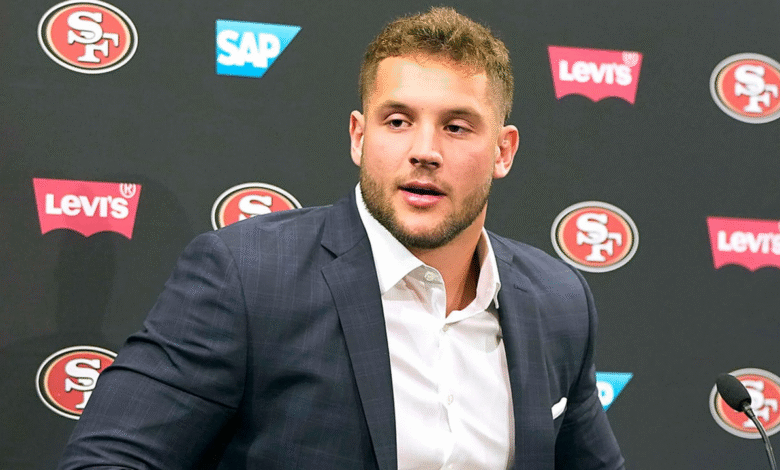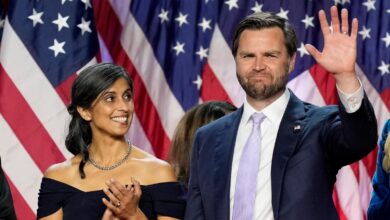Nick Bosa Racist Allegations: Separating Facts from Controversy

Introduction
Nick Bosa, a defensive powerhouse for the San Francisco 49ers, has become one of the most talked-about athletes in the NFL, not just for his performance on the field but also for controversies off it. Among the discussions surrounding his name are allegations tied to past social media activity that some labeled as racially insensitive. The phrase “Nick Bosa racist” began circulating widely online, sparking heated debates among fans, critics, and the media.
Understanding this controversy requires a closer look at how the allegations emerged, how different groups reacted, and how Bosa himself responded. Beyond the player, the discussion also reflects broader societal debates about athletes, accountability, and the impact of personal beliefs in the digital age. This article breaks down the controversy, separating fact from rumor while exploring its impact on Bosa’s career and public image.
Background on Nick Bosa
Nick Bosa comes from a football family, following in the footsteps of his brother Joey Bosa and father John Bosa. Growing up in Florida, he became a standout player at Ohio State University before declaring for the NFL Draft. Known for his explosive pass-rushing ability, he quickly rose to prominence and was selected second overall by the San Francisco 49ers in 2019.
Before the controversy gained momentum, Bosa’s reputation was largely tied to his athleticism, work ethic, and potential to dominate at the professional level. His college career had positioned him as one of the most promising defensive prospects of his generation, and his transition into the NFL solidified that image. However, in the lead-up to the draft, old tweets and online interactions resurfaced, sparking a very different kind of attention.
This sudden shift in narrative—from rising star to controversial figure—illustrates how quickly an athlete’s personal life and digital footprint can influence their public perception. It set the stage for an ongoing conversation about whether players should be judged solely for their athletic contributions or held accountable for everything they’ve ever said or posted online.
Origins of the Racist Allegations
The phrase “Nick Bosa racist” began trending when old social media activity attributed to him was uncovered. Some of the content included politically charged posts, critical remarks about cultural figures, and tweets that critics argued carried racial undertones. Although some posts were later deleted, screenshots circulated widely, fueling the allegations.
The timing of these revelations was crucial. As Bosa prepared to enter the NFL, the draft spotlight amplified everything about his life, both positive and negative. Media outlets began reporting not only on his athletic skills but also on the resurfaced posts. This framing turned what might have been a minor controversy into a headline-grabbing story.
It is important to note that while many critics interpreted his past online behavior as racially insensitive, others argued that the allegations were exaggerated or taken out of context. This divide in interpretation made the story even more polarizing, ensuring that the debate would not fade quickly.
The controversy highlights the power of social media in shaping narratives. For athletes like Bosa, what was once considered harmless posting during teenage years suddenly became ammunition for critics questioning his character as an adult professional athlete.
Public and Media Reactions
Public reaction to the allegations was sharply divided. On one side, critics labeled Bosa as racially insensitive and argued that such behavior should have consequences for his professional career. On the other side, supporters defended him, claiming that youthful mistakes should not define him forever. This clash of perspectives fueled heated debates on platforms like Twitter, Reddit, and sports forums.
Mainstream media also played a major role in shaping the controversy. Some outlets framed the story as part of a broader conversation about racism and accountability in sports, while others focused more narrowly on the potential impact on Bosa’s draft status. This split coverage created a feedback loop: social media amplified media stories, which in turn generated more online discourse.
Reactions within the NFL community were more measured. Teammates, coaches, and officials largely avoided direct criticism, instead emphasizing Bosa’s athletic potential and professionalism within the locker room. For many, his on-field contributions overshadowed the controversy. However, the lingering public conversation demonstrated how off-field issues can stick with athletes long after the initial headlines fade.
The media and public response underscored how divided American audiences are when it comes to discussing race, politics, and sports. Bosa’s situation became less about one athlete’s behavior and more about a larger cultural debate.
Nick Bosa’s Response and Statements
Facing mounting criticism, Nick Bosa addressed the allegations publicly. He acknowledged deleting past tweets and explained that he wanted to avoid distractions as he transitioned into his professional career. While he did not explicitly admit to racist behavior, he expressed regret for comments that could have offended others.
Bosa’s response was strategic. By taking ownership of the decision to clean up his social media and offering a public statement, he aimed to move past the controversy while demonstrating some level of accountability. His comments highlighted the difficulty athletes face when balancing personal beliefs with professional responsibilities in the public eye.
The San Francisco 49ers, his team, also weighed in. Officials voiced support for Bosa, emphasizing his character, work ethic, and fit within the organization. The NFL, too, did not impose any sanctions or disciplinary measures, signaling that the league considered the matter closed after his statements.
For some critics, Bosa’s response fell short of a genuine apology, while supporters argued it was sufficient given the nature of the allegations. Either way, his statements helped to ease immediate concerns, allowing him to focus on his career.
Impact on Career and Public Image
Despite the controversy, Nick Bosa’s career trajectory remained strong. He was selected second overall in the 2019 NFL Draft and quickly made an impact, earning Defensive Rookie of the Year honors. His performance on the field, particularly during the 49ers’ Super Bowl run, shifted much of the focus back to his athletic achievements.
Still, the phrase “Nick Bosa racist” continues to surface online, particularly when discussions about race and sports arise. While the allegations did not derail his career, they became a permanent part of his public narrative. For athletes, this demonstrates how online controversies can follow them indefinitely, even when overshadowed by professional success.
Endorsements and sponsorships for Bosa were largely unaffected, suggesting that corporate partners prioritized his on-field reputation over off-field controversy. However, the long-term impact on his legacy remains uncertain, as future debates about accountability in sports could bring past controversies back into focus.
The episode reveals a broader truth about modern athletes: personal histories and online actions are inseparable from professional reputations. Bosa’s case illustrates both the risks of unchecked social media use and the resilience of a strong athletic brand.
Broader Discussion: Athletes, Politics, and Racism
The controversy around Nick Bosa cannot be viewed in isolation. Across sports, athletes have increasingly been scrutinized for their political beliefs, social media activity, and comments on sensitive topics. In today’s hyperconnected environment, fans and media expect transparency, accountability, and in some cases, moral leadership from sports figures.
This raises complex questions: Should athletes be judged solely by their performance, or should their off-field behavior carry equal weight? Is it fair to hold players accountable for comments made in their youth, long before they entered the professional spotlight? These debates go beyond Bosa, reflecting a broader cultural struggle over how society treats public figures.
The intersection of sports, politics, and race continues to grow. From kneeling protests in the NFL to controversies involving other athletes’ comments, the line between entertainment and political discourse has blurred. Bosa’s case is simply one example of how athletes are caught in this tension, where every action is amplified and dissected.
For young athletes, the lesson is clear: what they post online may follow them for years. For fans and media, the challenge is deciding how much weight to give to past behavior in evaluating a player’s legacy.
Conclusion
Nick Bosa’s journey through the controversy surrounding allegations of racism highlights the complexities of being a modern athlete. While the phrase “Nick Bosa racist” continues to appear online, the full story is more nuanced. Allegations based on social media posts sparked a debate that drew in fans, media, and cultural critics. His response, combined with his on-field dominance, allowed him to weather the storm, but the incident remains a reminder of the lasting power of digital footprints.
Ultimately, the case reflects larger societal conversations about accountability, race, and the expectations placed on public figures. For Bosa, his legacy will likely continue to be defined primarily by his football achievements, but the controversy serves as an enduring chapter in his public story.
Also Read: barb carter florida




